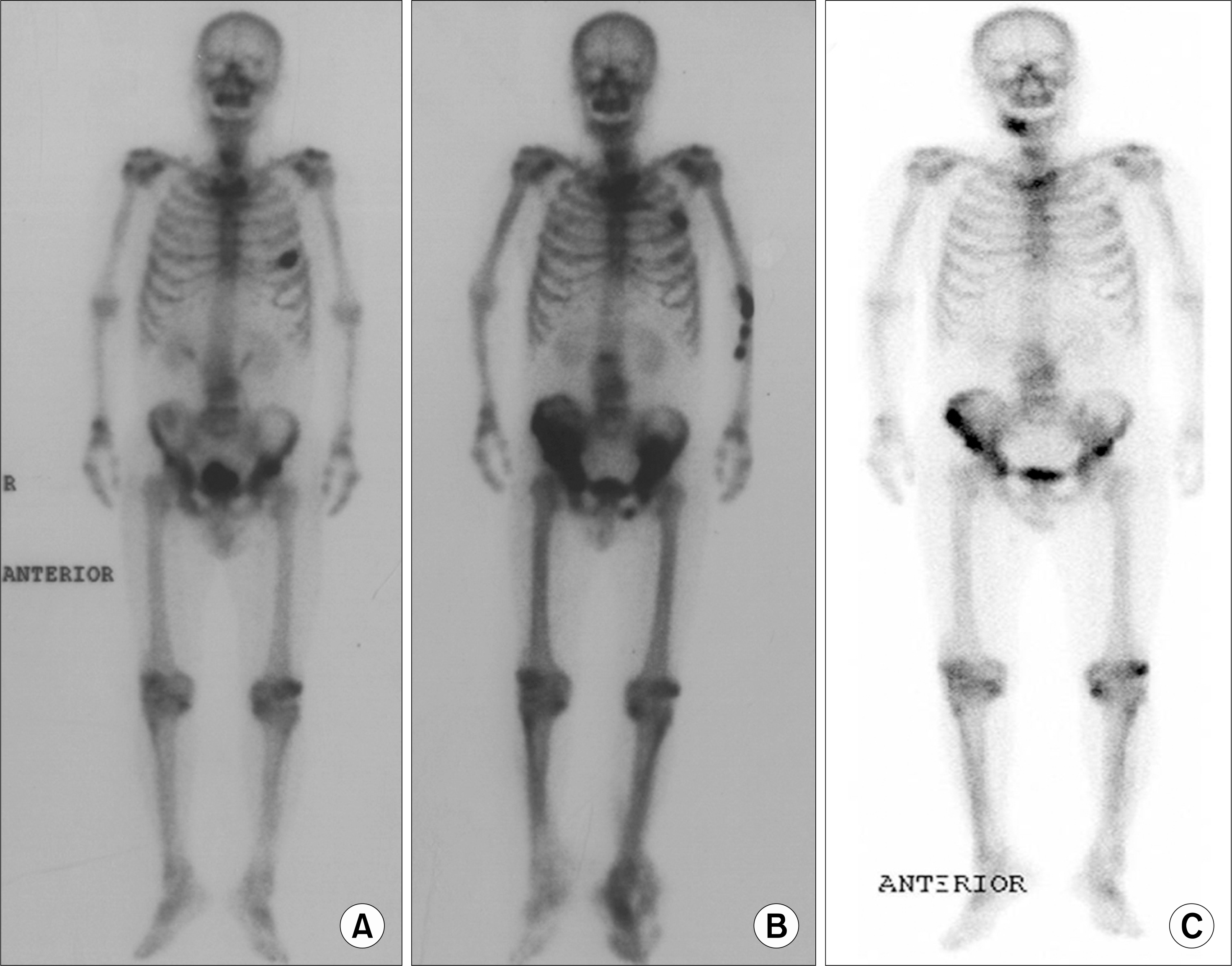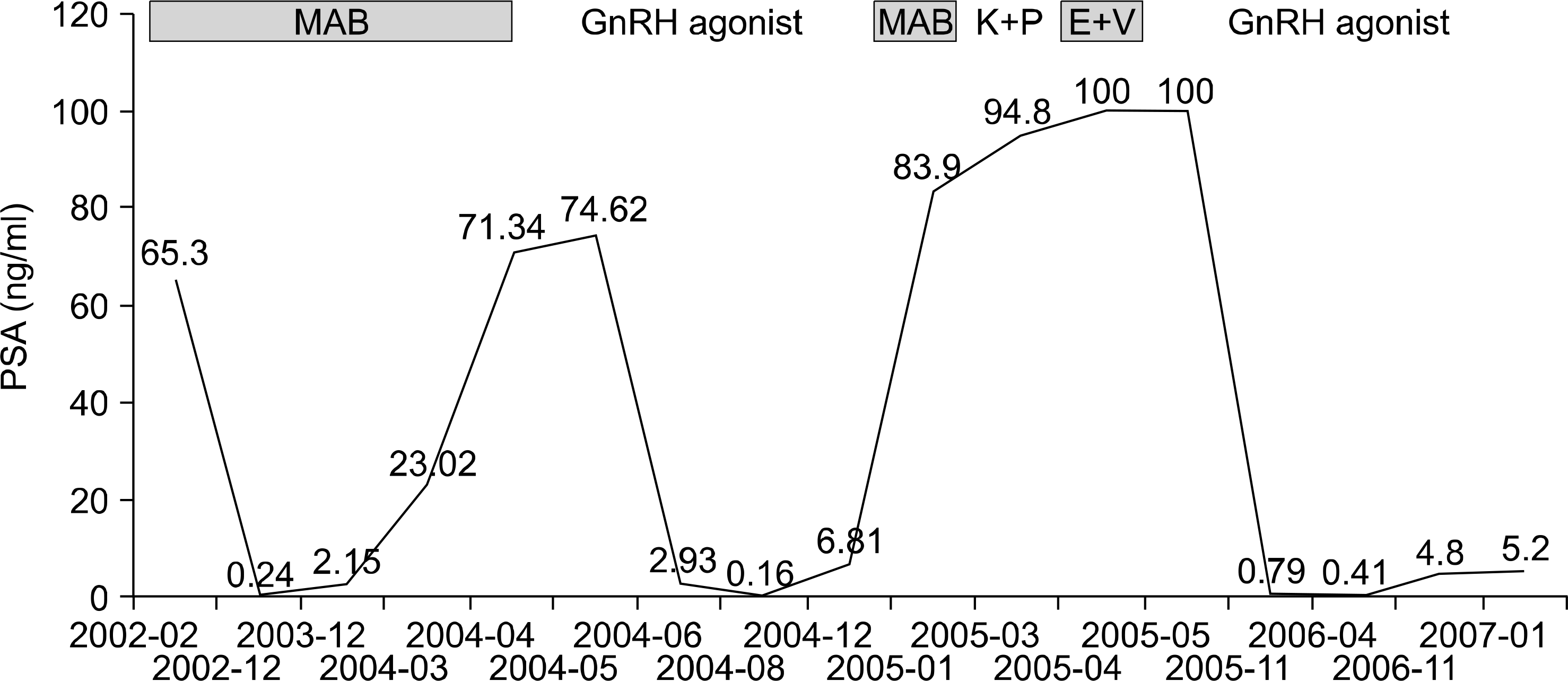Abstract
In some patients with prostate cancer and who manifest disease progression during maximal androgen blockade (MAB) therapy, discontinuation of antiandrogen treatment might result in a significant fall in the level of serum prostate-specific antigen (PSA), and this is often correlated with clinical improvement (antiandrogen withdrawal syndrome). However, a decline in the PSA level after the withdrawal of estramustine phosphate is extremely rare. We report here on a case of dramatic decline in the PSA level after withdrawal of estramustine phosphate in a patient with hormone refractory prostate cancer.
References
1. Kelly WK, Scher HI. Prostate-specific antigen decline after antiandrogen withdrawal: the flutamide withdrawal syndrome. J Urol. 1993; 149:607–9.
2. Nishiyama T, Terunuma M. Hormone/antihormone withdrawal and dexamethasone for hormone-refractory prostate cancer. Int J Urol. 1998; 5:44–7.

3. Shibata Y, Morita T, Kashiwagi B, Tomizawa H, Yamanaka H. Estramustine phosphate withdrawal syndrome with dramatic pain relief. J Urol. 1999; 162:805.

4. Kobayashi M, Kuramoto H, Ota J, Fujimoto N. Dramatic decline in prostate-specific antigen by withdrawal of estramustine phosphate in hormone refractory prostate cancer. Int J Urol. 2006; 13:1019–21.

5. Miyamoto H, Rahman MM, Chang C. Molecular basis for the antiandrogen withdrawal syndrome. J Cell Biochem. 2004; 91:3–12.

6. Suzuki H, Akakura K, Komiya A, Aida S, Akimoto S, Shimazaki J. Codon 877 mutation in the androgen receptor gene in advanced prostate cancer: relation to antiandrogen withdrawal syndrome. Prostate. 1996; 29:153–8.

Fig. 1.
Serial changes of bone scan finding. (A) Initial bone scan, (B) 38 months later (after second line hormone therapy), (C) 57 months later (after estramustine withdrawal).

Fig. 2.
Clinical course. The serum prostate-specific antigen (PSA) level declined dramatically after the withdrawal of estramustine phosphate. PSA: prostate-specific antigen, MAB: maximal androgen blockade, GnRH: gonadotrophin releasing hormone, K: ketoconazole, P: prednisolone, E: estramustine, V: vinblastine.





 PDF
PDF ePub
ePub Citation
Citation Print
Print


 XML Download
XML Download